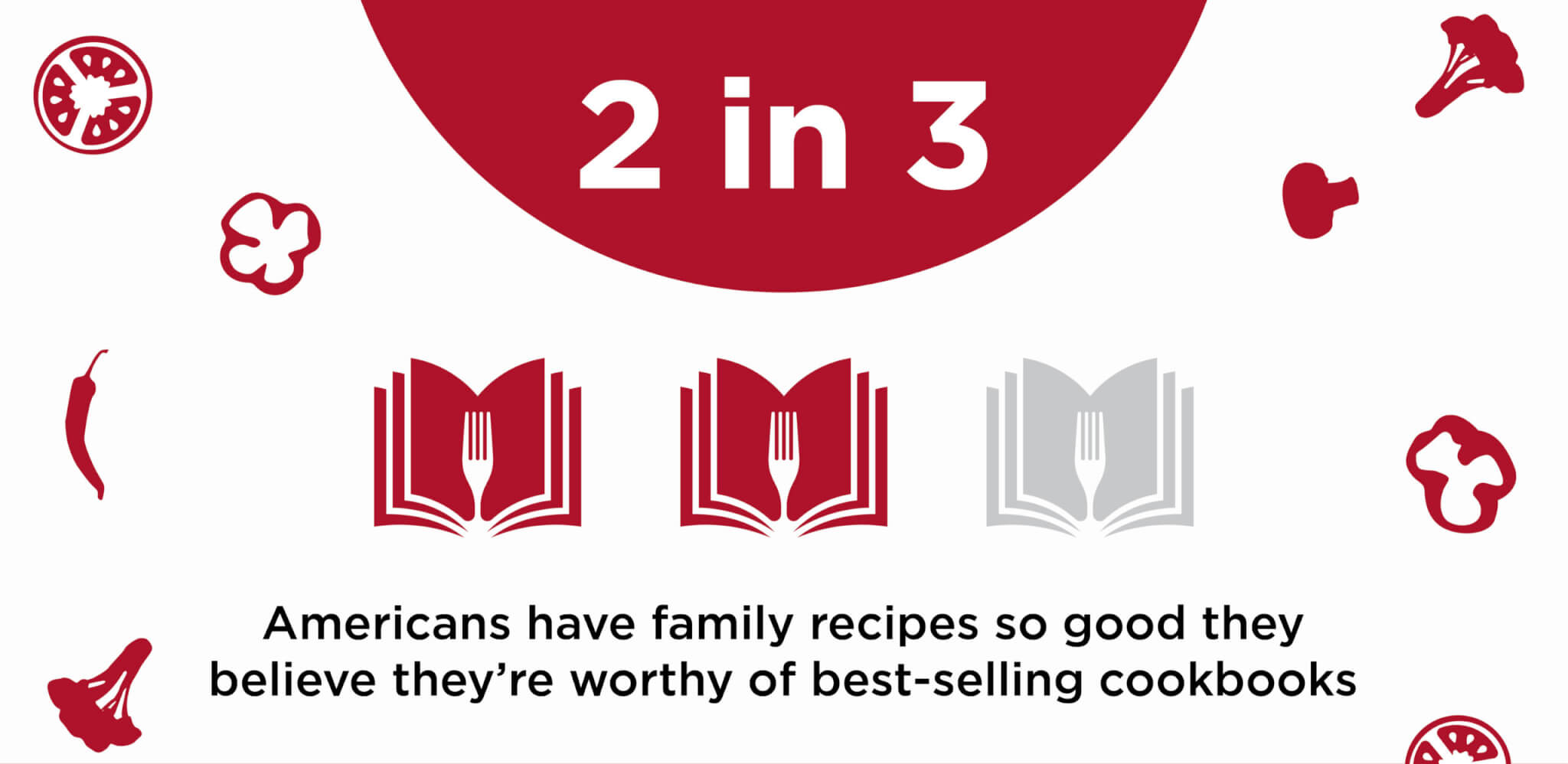NEW YORK — Could you be the culinary world’s next sensation? A recent survey finds that a staggering two-thirds of Americans have family recipes they believe are worthy of gracing the pages of best-selling cookbooks.
In the poll involving 2,000 U.S. adults, millennials emerged as the largest group of Americans utilizing old family recipes in their cooking. Three in four say the superior quality of these cherished recipes makes them want to pass these meals down to future generations.
The data shows that family recipes are pivotal to 77 percent of Americans in terms of familial heritage. Interestingly, Gen X has been identified as the primary holders of family recipes, capturing a 77 percent share. They’re closely followed by baby boomers at 76 percent, millennials at 68 percent, and Gen Z lagging behind at 53 percent.
The findings also show that 71 percent of individuals inherited a family recipe from their parents (54%) or grandparents (40%). Furthermore, a notable 24 percent have recipes with origins tracing back to their great-grandparents’ era.

Commissioned by Bob Evans and conducted by OnePoll, the study illustrates a trend: family recipes predominantly grace the tables during family reunions (40%), winter festivities (39%), Thanksgiving (34%), Sunday feasts (28%), and cozy family evenings (21%).
A significant 62 percent are gearing up to showcase their family recipes during this year’s holiday gatherings, with 75 percent agreeing that incorporating them adds a touch of sentiment to the festivities.
Among the cherished recollections shared were tales of Swedish meatballs crafted by Swedish immigrant grandparents and hand-drafted enchilada and biscuit-gravy recipes passed down by beloved grandmothers.
“Family recipes carry a unique charm and are disseminated with immense pride,” says spokesperson Ciare James, Bob Evans Farms’ Vice President of Brand Marketing, in a statement. “They’re potent in evoking fond memories, venerating traditions, and mirroring one’s country, culture, and community.”
Despite the digital era’s dominance, there’s a resonant call for preserving tangible recipes. A significant proportion still treasures recipes on tangible note cards (46%), traditional recipe books (40%), or commits them to memory (25%), as opposed to digitized versions (13%). Regrettably, 15 percent confessed to misplacing or damaging a prized inherited recipe.

Recipes conjure potent sentiments, igniting joy (48%), love (46%), nostalgia (35%), and gratification (24%) in many.
An inspiring 27 percent have crafted their original recipes, aspiring to embed them into family legacies. Of these culinary pioneers, 75 percent intend to pass their creations on to their children, 25 percent aim for their grandchildren, and an equal percentage hopes to share them with their partners.
However, opinions are split regarding future generations valuing these recipes as much as current ones do.
In an intriguing twist, millennials, at 80 percent, exhibit an amplified zeal to perpetuate their culinary lineage, as compared to Gen Z (67%), Gen X (75%), and baby boomers (76%).
“Even in today’s digital realm, curating and sharing recipes remain integral to our lives. Our collective penchant for discovering foods with a tale and a heritage highlights our intrinsic yearning to revel in bygone culinary narratives,” says spokesperson Sarah Lohman.
Survey methodology:
This random double-opt-in survey of 2,000 general population Americans was commissioned by Bob Evans. It was conducted between Sept. 25 and Oct. 2, 2023 by market research company OnePoll, whose team members are members of the Market Research Society and have corporate membership to the American Association for Public Opinion Research (AAPOR) and the European Society for Opinion and Marketing Research (ESOMAR).

